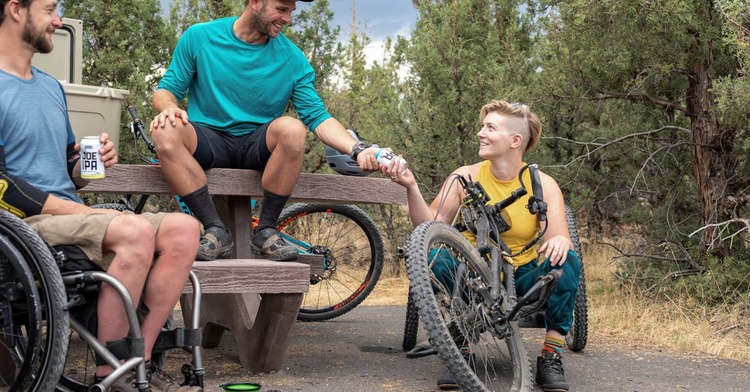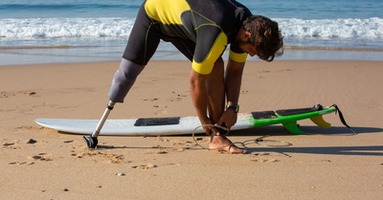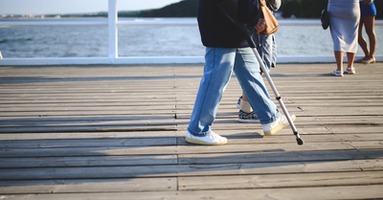
The National Council on Independent Living: Championing the Rights and Inclusion of People with Disabilities
The National Council on Independent Living (NCIL) stands as one of the most significant advocacy organizations in the United States, dedicated to ensuring the rights and full inclusion of people with disabilities. Since its founding in 1982, NCIL has played a pivotal role in advancing the independent living movement, representing Centers for Independent Living (CILs) and Statewide Independent Living Councils (SILCs) across the nation. The organization's mission is to ensure that individuals with disabilities have access to the necessary services and supports to live independently and participate fully in their communities.
NCIL's initiatives span a wide range of issues, including healthcare, employment, housing, and transportation. Through its efforts, NCIL works to break down barriers and create a more inclusive society where people with disabilities are empowered to live life on their own terms. In addition to advocacy, NCIL provides training, technical assistance, and a wealth of resources to its members, enabling them to better serve their communities.
This comprehensive article explores the history, mission, and core values of the National Council on Independent Living, highlighting its key initiatives, advocacy efforts, and the profound impact it has had on the lives of people with disabilities. We will also examine NCIL's role in shaping public policy, its commitment to fostering community and inclusion, and the future goals of this influential organization.
The Founding and Early History of the National Council on Independent Living
The Origins of the Independent Living Movement
The origins of the independent living movement can be traced back to the early 1960s, a time when people with disabilities began to challenge the societal norms that kept them segregated and marginalized. The movement was born out of a desire for autonomy, self-determination, and the right to live independently. Individuals with disabilities began to demand equal access to education, employment, housing, and public services, rejecting the notion that they should be confined to institutions or reliant on charity.
One of the key figures in the early independent living movement was Ed Roberts, a disability rights activist who became the first wheelchair user to attend the University of California, Berkeley. Roberts and his fellow activists founded the first Center for Independent Living (CIL) in Berkeley, which became a model for similar centers across the country. These CILs provided people with disabilities with the tools, resources, and support they needed to live independently, advocating for their rights and helping them navigate the challenges of daily life.
The Founding of the National Council on Independent Living
As the independent living movement gained momentum, it became clear that there was a need for a national organization that could represent the interests of people with disabilities at the federal level. In 1982, the National Council on Independent Living was founded to fill this role. NCIL was established as a membership organization, bringing together CILs, SILCs, and other disability rights organizations to advocate for the rights and inclusion of people with disabilities.
From its inception, NCIL has been committed to the principles of self-determination, equality, and inclusion. The organization’s founders recognized that people with disabilities should have control over their own lives and that they should be fully included in all aspects of society. NCIL's early advocacy efforts focused on promoting legislation and policies that would support independent living and ensure that people with disabilities had access to the services and supports they needed to thrive.
Early Advocacy Efforts and Legislative Achievements
In its early years, NCIL played a key role in advocating for the passage of the Americans with Disabilities Act (ADA), a landmark civil rights law that prohibits discrimination against individuals with disabilities in all areas of public life. The ADA, which was signed into law in 1990, has been one of NCIL's most significant legislative achievements, providing people with disabilities with greater access to employment, education, transportation, and public accommodations.
NCIL also advocated for the reauthorization and expansion of the Rehabilitation Act of 1973, which includes provisions for independent living services and supports. The organization worked to ensure that the voices of people with disabilities were heard in the policymaking process, advocating for the inclusion of independent living services as a core component of the nation's disability rights framework.
NCIL's Mission and Core Values
Mission Statement
The mission of the National Council on Independent Living is to advance the independent living philosophy and to promote the full inclusion, equality, and participation of people with disabilities in all aspects of society. NCIL works to ensure that people with disabilities have the right to control their own lives, make their own choices, and live independently in their communities. The organization’s mission is also focused on advocating for policies that support the rights of people with disabilities and providing resources and support to its members.
Core Values
NCIL’s work is guided by a set of core values that reflect the principles of the independent living philosophy and the organization’s commitment to the disability rights movement. These values include:
- Self-Determination: NCIL believes that people with disabilities have the right to make their own decisions and control their own lives, including the right to choose where and how they live.
- Inclusion: The organization is committed to promoting the full inclusion of people with disabilities in all aspects of society, including education, employment, housing, and transportation.
- Equality: NCIL advocates for the equal rights of people with disabilities, ensuring that they have the same opportunities and access to services as anyone else.
- Empowerment: The organization works to empower people with disabilities by providing them with the tools, resources, and support they need to live independently and achieve their goals.
- Advocacy: NCIL is dedicated to advocating for policies and legislation that support the rights and inclusion of people with disabilities, both at the national and local levels.
Promoting Self-Determination and Independence
At the heart of NCIL's mission is the promotion of self-determination and independence for people with disabilities. The organization believes that individuals with disabilities should have control over their own lives and should be empowered to make decisions about their care, living arrangements, and participation in the community. NCIL advocates for policies and practices that support independent living, ensuring that people with disabilities have the tools and resources they need to live life on their own terms.
Advocating for Full Inclusion and Equality
NCIL is dedicated to advocating for the full inclusion and equality of people with disabilities in all aspects of society. The organization works to eliminate barriers that prevent individuals with disabilities from fully participating in their communities, whether those barriers are physical, social, or attitudinal. NCIL's advocacy efforts are focused on promoting equal access to education, employment, healthcare, housing, transportation, and public services, as well as combating discrimination and stigma.
Commitment to Social Justice and Disability Rights
NCIL's work is grounded in the principles of social justice and disability rights. The organization recognizes that people with disabilities have historically been marginalized and excluded from many aspects of society, and it is committed to challenging this injustice. NCIL advocates for policies that protect the rights of people with disabilities, promote equity, and ensure that all individuals have the opportunity to achieve their full potential.
Fostering Community and Peer Support
NCIL understands the importance of community and peer support in the lives of people with disabilities. The organization fosters a strong sense of community among its members, providing opportunities for individuals with disabilities to connect, share experiences, and support one another. NCIL's peer support programs are a vital resource for people with disabilities, helping them navigate the challenges of daily life and offering a network of understanding and encouragement.
Promoting Accessibility and Universal Design
Accessibility is a core value for NCIL, and the organization is committed to promoting universal design principles that ensure that all environments, products, and services are accessible to people with disabilities. NCIL advocates for the development and implementation of accessible design standards, working to ensure that people with disabilities can fully participate in all aspects of society without facing unnecessary barriers.
Centers for Independent Living (CILs) and Statewide Independent Living Councils (SILCs)
The Role of Centers for Independent Living (CILs)
Centers for Independent Living (CILs) are community-based, non-residential organizations that provide a wide range of services to support the independence of people with disabilities. CILs are unique in that they are controlled and operated by people with disabilities themselves, ensuring that the services they provide are truly responsive to the needs and preferences of the individuals they serve. The core services provided by CILs include:
- Information and Referral: CILs provide information on disability-related services, programs, and resources available in the community, as well as referrals to other organizations and agencies.
- Independent Living Skills Training: CILs offer training in a variety of skills that support independent living, such as budgeting, cooking, using public transportation, and self-advocacy.
- Peer Counseling: CILs provide peer counseling services, where individuals with disabilities can receive support and guidance from others who have similar experiences.
- Advocacy: CILs engage in both individual and systems advocacy to ensure that people with disabilities have access to the services, supports, and opportunities they need to live independently.
The Role of Statewide Independent Living Councils (SILCs)
Statewide Independent Living Councils (SILCs) are statewide organizations that work in partnership with CILs and other stakeholders to develop and implement state plans for independent living. SILCs are responsible for coordinating the delivery of independent living services across the state, ensuring that these services are available and accessible to all individuals with disabilities. SILCs also play a key role in advocating for policies and funding that support independent living services at the state level.
NCIL’s Support for CILs and SILCs
As the national membership organization representing CILs and SILCs, NCIL provides a wide range of support and resources to its members. This includes technical assistance, training, and advocacy resources that help CILs and SILCs carry out their missions and provide high-quality services to people with disabilities. NCIL also works to promote the development and sustainability of CILs and SILCs, advocating for policies and funding that support their work and ensure that they can continue to serve their communities effectively.
Key Programs and Services of the National Council on Independent Living
NCIL is involved in a wide range of initiatives and programs that support its mission of advancing the independent living philosophy and promoting the full inclusion of people with disabilities. These initiatives focus on areas such as healthcare, employment, housing, transportation, and civil rights.
Advocacy and Public Policy Initiatives
One of NCIL's most important roles is as an advocate for the rights and inclusion of people with disabilities at the federal, state, and local levels. The organization works to influence legislation and policies that impact people with disabilities, ensuring that their voices are heard in the policymaking process. NCIL's advocacy efforts cover a wide range of issues, including healthcare, employment, housing, transportation, and civil rights.
Healthcare Advocacy: Ensuring Access to Quality Care
Healthcare is a critical issue for people with disabilities, and NCIL is actively involved in advocating for policies that ensure individuals with disabilities have access to high-quality, affordable healthcare. The organization works to protect and expand access to healthcare services, including home and community-based services (HCBS) that allow individuals with disabilities to receive care in their own homes rather than in institutional settings. NCIL also advocates for the inclusion of people with disabilities in healthcare reform efforts, ensuring that their needs are considered in the development of new policies and programs.
Employment Advocacy: Promoting Inclusive Workplaces
Employment is a key factor in achieving independence and economic self-sufficiency, and NCIL is committed to promoting employment opportunities for people with disabilities. The organization advocates for policies that support the employment rights of people with disabilities, including the enforcement of the Americans with Disabilities Act (ADA) and the promotion of inclusive workplaces. NCIL also works to address barriers to employment, such as discrimination, lack of accessible transportation, and inadequate accommodations. Through its employment initiatives, NCIL seeks to empower people with disabilities to achieve economic independence and participate fully in the workforce.
Housing Advocacy: Ensuring Accessible and Affordable Housing
Access to affordable, accessible housing is essential for independent living, and NCIL is a strong advocate for policies that support the housing needs of people with disabilities. The organization works to promote the development of accessible housing options, as well as to protect the rights of individuals with disabilities to live in the community. NCIL also advocates for the enforcement of fair housing laws and works to address barriers to housing, such as discrimination and lack of accessible housing options. Through its housing initiatives, NCIL seeks to ensure that people with disabilities have the opportunity to live independently and participate fully in their communities.
Transportation Advocacy: Promoting Mobility and Independence
Transportation is another critical issue for people with disabilities, as access to transportation is essential for participating in all aspects of community life. NCIL advocates for policies that promote accessible transportation options, including public transit, paratransit, and accessible vehicles. The organization also works to ensure that transportation services are available and affordable for people with disabilities, and that they comply with accessibility standards set forth by the ADA. NCIL’s transportation initiatives aim to remove barriers to mobility and ensure that people with disabilities have the same opportunities as everyone else to travel independently.
Training and Technical Assistance
NCIL provides a wide range of training and technical assistance services to its members, helping them to better serve their communities and advocate for the rights of people with disabilities. The organization's training programs cover a wide range of topics, including advocacy strategies, disability rights law, accessible design, and best practices for independent living services.
Advocacy Training: Empowering Advocates for Change
One of NCIL's key training initiatives is its advocacy training program, which is designed to empower individuals with disabilities and their allies to become effective advocates for change. The program provides participants with the knowledge and skills they need to advocate for their rights and the rights of others, including how to engage with policymakers, build coalitions, and use the media to raise awareness. NCIL's advocacy training program is an important resource for individuals and organizations working to advance the independent living movement.
Technical Assistance for CILs and SILCs
NCIL provides technical assistance to Centers for Independent Living (CILs) and Statewide Independent Living Councils (SILCs) across the country, helping them to build their capacity and improve their services. The organization's technical assistance services include support with program development, grant writing, compliance with federal regulations, and the implementation of best practices for independent living services. NCIL's technical assistance is an invaluable resource for CILs and SILCs, helping them to better serve their communities and achieve their goals.
Peer Support and Community Building
NCIL is committed to fostering a strong sense of community and peer support among people with disabilities. The organization provides a variety of peer support programs and resources, offering individuals with disabilities the opportunity to connect with others who share similar experiences and challenges. NCIL's peer support programs are designed to provide emotional support, practical advice, and a sense of belonging, helping people with disabilities navigate the challenges of daily life.
Peer Support Groups: Building Connections and Providing Support
One of the key components of NCIL's peer support efforts is its network of peer support groups, which provide individuals with disabilities with a safe and supportive space to share their experiences and offer mutual support. These groups are facilitated by individuals with disabilities who have experience navigating the challenges of independent living and are able to offer valuable insights and advice. NCIL's peer support groups play a vital role in building connections and fostering a sense of community among people with disabilities.
Online Communities and Resources
In addition to its in-person peer support programs, NCIL also offers a range of online communities and resources for people with disabilities. These online communities provide a space for individuals with disabilities to connect, share experiences, and access information and resources. NCIL's online communities are an important resource for individuals who may not have access to in-person support or who prefer to connect with others in a virtual setting.
Public Awareness and Education Campaigns
NCIL is dedicated to raising public awareness about the rights and needs of people with disabilities and promoting a more inclusive society. The organization conducts public awareness campaigns and educational initiatives aimed at changing public perceptions of disability, challenging stereotypes, and promoting the principles of equality and inclusion.
Public Awareness Campaigns: Changing Perceptions of Disability
NCIL's public awareness campaigns are designed to change public perceptions of disability and promote a more inclusive society. The organization works to challenge stereotypes and misconceptions about people with disabilities, highlighting their strengths, abilities, and contributions to society. NCIL's public awareness campaigns are an important tool in the fight for disability rights, helping to raise awareness about the challenges faced by people with disabilities and promote greater acceptance and inclusion.
Educational Initiatives: Promoting Disability Rights and Inclusion
In addition to its public awareness campaigns, NCIL also conducts educational initiatives aimed at promoting disability rights and inclusion. These initiatives include workshops, seminars, and training programs on topics such as disability rights law, accessible design, and best practices for serving people with disabilities. NCIL's educational initiatives are designed to raise awareness about the rights and needs of people with disabilities and to promote a more inclusive and equitable society.
Civil Rights and Disability Justice
NCIL is deeply committed to advancing the civil rights of people with disabilities and ensuring that they are treated with dignity and respect. The organization advocates for the enforcement of disability rights laws, such as the ADA, and works to address discrimination and other forms of injustice faced by people with disabilities. NCIL also engages in public education and awareness campaigns to challenge stereotypes and promote positive attitudes toward people with disabilities. Through its civil rights initiatives, NCIL seeks to create a society where people with disabilities are fully included and have the same rights and opportunities as everyone else.
Leadership Development and Empowerment
Empowering people with disabilities to become leaders in their communities is a key goal of NCIL’s work. The organization offers a variety of leadership development programs and training opportunities designed to build the skills and confidence of individuals with disabilities. These programs focus on areas such as advocacy, public speaking, and community organizing, and are designed to equip participants with the tools they need to become effective advocates for themselves and others. NCIL’s leadership development initiatives are also focused on promoting the participation of people with disabilities in decision-making processes at all levels of government and society.
The Impact of NCIL on the Disability Community
Empowerment through Advocacy and Support
One of the most significant impacts of NCIL's work has been the empowerment of people with disabilities through advocacy and support. The organization's advocacy efforts have helped to secure important rights and protections for people with disabilities, while its support programs have provided individuals with the resources and tools they need to live fulfilling, independent lives. Many individuals with disabilities report that NCIL's work has had a profound impact on their lives, helping them to navigate the challenges of daily life and achieve greater independence.
Building a Strong and Supportive Community
NCIL has also played a crucial role in building a strong and supportive community for people with disabilities. The organization's peer support programs, training initiatives, and online communities have helped to foster a sense of belonging and connection among people with disabilities, reducing feelings of isolation and promoting mental and emotional well-being. NCIL's community-building efforts have been instrumental in creating a network of support for people with disabilities across the country.
Advancing Disability Rights and Inclusion
NCIL's commitment to advancing disability rights and inclusion has had a lasting impact on the lives of people with disabilities. The organization's advocacy efforts have led to the passage of important legislation, such as the Americans with Disabilities Act (ADA), that has significantly improved access to employment, education, housing, and public services for people with disabilities. NCIL's work to promote accessibility and universal design has also helped to create a more inclusive society where people with disabilities can fully participate in all aspects of life.
Changing Public Perceptions of Disability
Through its public awareness campaigns and educational initiatives, NCIL has played a key role in changing public perceptions of disability. The organization has worked to challenge stereotypes and promote a more positive and inclusive understanding of disability, helping to raise awareness about the challenges faced by people with disabilities and promote greater acceptance and inclusion. NCIL's efforts have helped to shift the conversation about disability from one focused on limitations and deficits to one that recognizes the strengths and abilities of people with disabilities.
NCIL's Role in Shaping Public Policy
Advocacy at the Federal, State, and Local Levels
NCIL is actively involved in shaping public policy at the federal, state, and local levels. The organization works to influence legislation and policies that impact people with disabilities, advocating for their rights and ensuring that their voices are heard in the policymaking process. NCIL's advocacy efforts cover a wide range of issues, including healthcare, employment, housing, transportation, and civil rights.
Federal Policy Advocacy
At the federal level, NCIL works closely with Congress and federal agencies to advocate for policies that benefit people with disabilities. The organization provides testimony at congressional hearings, meets with lawmakers, and collaborates with other disabled advocacy groups to influence the development and implementation of federal legislation. NCIL's federal advocacy efforts have been instrumental in securing important rights and protections for people with disabilities, including the passage of the Americans with Disabilities Act (ADA). The organization is also actively involved in advocating for the reauthorization and funding of key disability programs, such as the Rehabilitation Act, the Individuals with Disabilities Education Act (IDEA), and the Older Americans Act.
State and Local Advocacy Efforts
In addition to its federal advocacy work, NCIL also supports state and local advocacy efforts through its network of CILs and SILCs. The organization provides training and technical assistance to its members to help them engage in effective advocacy at the state and local levels. NCIL also works to coordinate state and local advocacy efforts with national policy initiatives, ensuring that the voices of people with disabilities are heard at all levels of government.
Grassroots Advocacy and Community Organizing
NCIL believes in the power of grassroots advocacy and community organizing to create change. The organization works to build the capacity of people with disabilities to engage in advocacy and to organize their communities around issues that matter to them. NCIL’s grassroots advocacy efforts include training and support for disability advocates, as well as resources and tools for organizing campaigns and mobilizing community action. Through its grassroots advocacy work, NCIL seeks to empower people with disabilities to take control of their own lives and to create positive change in their communities.
Annual Advocacy and Legislative Conference
One of NCIL’s signature events is its Annual Advocacy and Legislative Conference, which brings together disability advocates, policymakers, and other stakeholders from across the country. The conference provides an opportunity for participants to learn about the latest developments in disability policy, to share best practices and strategies for advocacy, and to engage in direct advocacy with lawmakers. The conference also features workshops, panel discussions, and networking opportunities, as well as the chance to participate in NCIL’s annual march and rally on Capitol Hill. The Annual Advocacy and Legislative Conference is a key event in the disability rights movement, and it serves as a powerful platform for advancing the rights and inclusion of people with disabilities.
Key Legislative Achievements
Over the years, NCIL has played a key role in the passage of several landmark pieces of legislation that have significantly improved the lives of people with disabilities. These legislative achievements reflect NCIL's commitment to advocating for the rights and inclusion of people with disabilities and demonstrate the organization's ability to effect meaningful change through the legislative process.
The Americans with Disabilities Act (ADA)
One of NCIL's most significant legislative achievements is its role in the passage of the Americans with Disabilities Act (ADA). The ADA is a landmark civil rights law that prohibits discrimination against individuals with disabilities in all areas of public life, including employment, education, transportation, and public accommodations. NCIL was a key advocate for the passage of the ADA and continues to work to ensure that the law is fully implemented and enforced.
The Rehabilitation Act of 1973
The Rehabilitation Act of 1973 is another important piece of legislation that NCIL helped to shape. The Act prohibits discrimination on the basis of disability in programs conducted by federal agencies, in programs receiving federal financial assistance, in federal employment, and in the employment practices of federal contractors. NCIL's advocacy efforts were instrumental in securing the reauthorization and expansion of the Rehabilitation Act, ensuring that it continues to protect the rights of people with disabilities.
The Fair Housing Act Amendments of 1988
The Fair Housing Act Amendments of 1988 expanded the Fair Housing Act to include protections for people with disabilities, prohibiting discrimination in the sale, rental, and financing of housing based on disability. NCIL played a key role in advocating for the passage of these amendments, which have significantly improved access to housing for people with disabilities. The organization continues to work to ensure that the Fair Housing Act is upheld and that people with disabilities have access to safe, accessible, and affordable housing.
Ongoing Policy Initiatives
NCIL is committed to continuing its advocacy work and pursuing new policy initiatives that benefit people with disabilities. The organization is focused on addressing emerging issues, such as the impact of new technologies on accessibility, the need for expanded employment opportunities for people with disabilities, and the importance of healthcare equity.
Expanding Access to Telehealth Services
As telehealth becomes an increasingly important component of healthcare delivery, NCIL is advocating for expanded access to telehealth services for people with disabilities. The organization is working to ensure that telehealth services are accessible and effective for individuals with disabilities and that they have access to the technology and resources they need to participate in telehealth appointments.
Promoting Employment Opportunities for People with Disabilities
Employment remains a critical issue for people with disabilities, and NCIL is committed to promoting inclusive hiring practices and expanding employment opportunities for people with disabilities. The organization is advocating for policies that support vocational rehabilitation, provide incentives for employers to hire people with disabilities, and promote the inclusion of individuals with disabilities in the workforce.
Addressing Healthcare Equity
Healthcare equity is a key focus of NCIL's advocacy work, and the organization is committed to ensuring that people with disabilities have access to high-quality, affordable healthcare. NCIL is advocating for policies that address the unique healthcare needs of people with disabilities, promote accessible healthcare facilities and equipment, and ensure that disability-related services are covered by healthcare plans.
Impact and Achievements
Legislative and Policy Victories
Over the years, NCIL has played a critical role in securing legislative and policy victories that have advanced the rights and inclusion of people with disabilities. Some of the organization’s most notable achievements include:
- The Americans with Disabilities Act (ADA): NCIL was a key advocate for the passage of the ADA, which was signed into law in 1990. The ADA is a landmark civil rights law that prohibits discrimination against people with disabilities and ensures their access to employment, public services, and public accommodations.
- The Rehabilitation Act: NCIL has been a strong advocate for the reauthorization and funding of the Rehabilitation Act, which provides critical support for vocational rehabilitation services, independent living programs, and other disability-related services.
- The Affordable Care Act (ACA): NCIL played an important role in advocating for the inclusion of provisions in the ACA that protect the rights of people with disabilities, including the prohibition of discrimination based on pre-existing conditions and the expansion of Medicaid.
- The Home and Community-Based Services (HCBS) Settings Rule: NCIL has been a leading advocate for the implementation of the HCBS Settings Rule, which ensures that individuals with disabilities have the right to receive services in integrated, community-based settings rather than in institutions.
Strengthening the Independent Living Network
One of NCIL’s most significant contributions to the disability rights movement has been its work to strengthen and support the independent living network. Through its advocacy, training, and technical assistance efforts, NCIL has helped to ensure the growth and sustainability of CILs and SILCs across the country. The organization’s work has also helped to raise awareness of the independent living philosophy and to promote the importance of self-determination and community inclusion for people with disabilities.
Empowering People with Disabilities
At its core, NCIL’s work is about empowering people with disabilities to take control of their own lives and to advocate for their rights. Through its leadership development programs, advocacy initiatives, and community organizing efforts, NCIL has empowered countless individuals with disabilities to become leaders and advocates in their communities. The organization’s impact can be seen in the many disability rights victories that have been achieved over the years, as well as in the lives of the people with disabilities who have been able to live more independently and participate more fully in society as a result of NCIL’s work.
Building a More Inclusive Society
Ultimately, NCIL’s work is about building a more inclusive and equitable society for all people with disabilities. The organization’s advocacy and policy efforts have helped to break down barriers and create opportunities for people with disabilities to participate fully in all aspects of life. NCIL’s impact can be seen in the increased accessibility of public spaces, the expansion of employment opportunities for people with disabilities, and the growing recognition of the rights of people with disabilities to live independently and make their own choices.
The Future of the National Council on Independent Living
Strategic Goals and Vision for the Future
As NCIL looks to the future, the organization remains committed to its mission of advocating for the rights and inclusion of people with disabilities. NCIL's strategic goals for the future include expanding its advocacy efforts, increasing its impact through research and innovation, and continuing to provide high-quality programs and services to people with disabilities. The organization's vision for the future is one where all people with disabilities have the opportunity to live fulfilling, independent lives and where their rights and needs are recognized and respected.
Addressing Emerging Challenges and Opportunities
NCIL is focused on addressing emerging challenges and opportunities that impact people with disabilities. These include the rapid pace of technological change, the evolving healthcare landscape, and the increasing demand for accessible and inclusive services. NCIL is committed to staying at the forefront of these developments and ensuring that people with disabilities have access to the resources and support they need to navigate these changes.
Expanding Community Outreach and Support
NCIL is dedicated to expanding its community outreach and support efforts, with the goal of reaching more people with disabilities and their families. The organization plans to continue growing its network of CILs and SILCs, expanding its peer support programs, and developing new resources and services that meet the needs of the diverse disability community. NCIL's outreach efforts are focused on building a strong and connected community that can advocate for its rights and interests.
Continuing to Influence Public Policy
NCIL will continue to play a leading role in influencing public policy that affects people with disabilities. The organization is committed to advocating for policies that protect the rights of people with disabilities, promote accessibility and inclusion, and ensure access to essential services and benefits. NCIL's policy work will continue to focus on areas such as healthcare, employment, housing, and transportation, with the goal of creating a more equitable and inclusive society for people with disabilities.
Supporting the Next Generation of Disability Advocates
One of NCIL's key priorities for the future is supporting the next generation of disability advocates. The organization is committed to providing young people with disabilities with the tools, resources, and support they need to become effective advocates for themselves and their communities. NCIL plans to expand its training programs, mentorship opportunities, and leadership development initiatives to ensure that the next generation of disability advocates is prepared to carry on the work of the organization and to continue advocating for the rights and inclusion of people with disabilities.
The National Council on Independent Living has made a profound impact on the lives of people with disabilities since its founding in 1982. Through its advocacy, programs, and services, NCIL has empowered individuals with disabilities to live fulfilling, independent lives, and has ensured that their rights and needs are recognized and respected. The organization's commitment to promoting self-determination, accessibility, and inclusion has helped to improve access to employment, education, housing, and public services for people with disabilities, while its efforts to build a strong and supportive community have fostered a sense of belonging and connection.
As NCIL looks to the future, it remains committed to its mission of advocating for the rights and inclusion of people with disabilities. The organization's ongoing efforts will continue to play a crucial role in shaping public policy, advancing disability rights, and providing essential support to people with disabilities and their families. The work of the National Council on Independent Living is far from over, and the organization will undoubtedly continue to make a lasting impact on the lives of people with disabilities for years to come.
.png)





